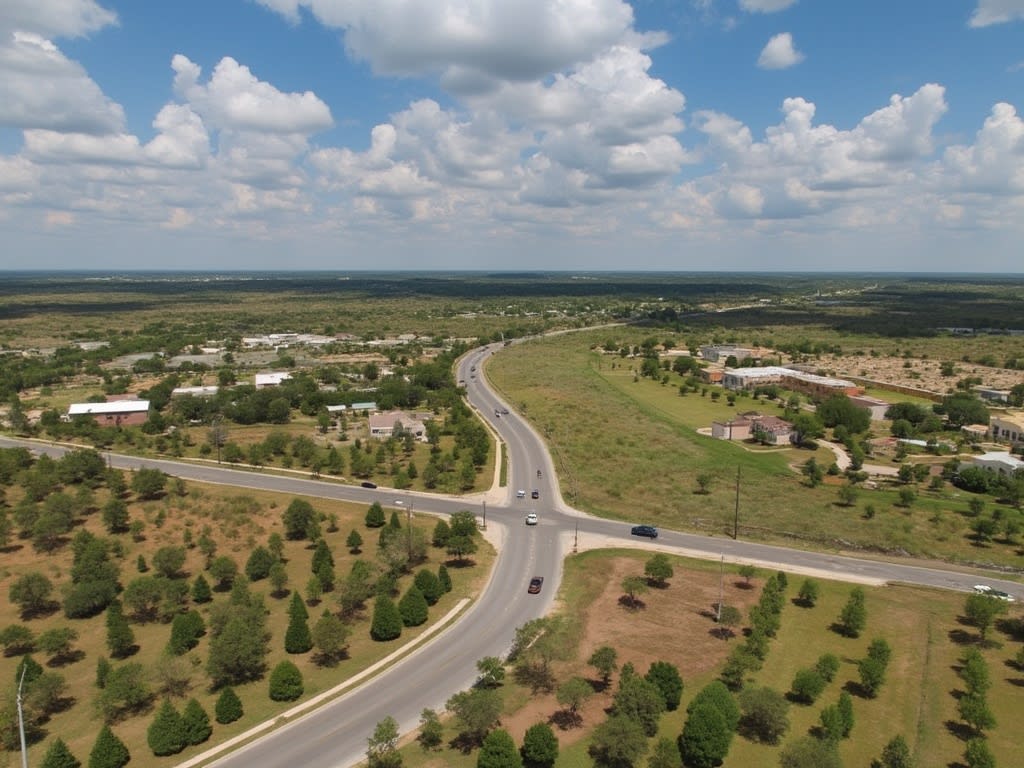San Antonio’s real estate market makes it an ideal time for land development. With median home prices at $300,000 and consistent population increases, demand continues to surge. Local developers actively pursue vacant land opportunities in San Antonio, giving property owners various sale options with specific considerations.
Key Takeaways
- Developer offers range from 75-90% of market value while delivering closings within 30-45 days versus traditional sales taking 6-12 months
- Direct sales eliminate agent fees, promotional costs, and the need for property upgrades
- Development agreements include 3-6 month inspection windows and detailed terms requiring thorough legal examination
- Property values can fluctuate between -25% to +20% based on project type
- Property owners need independent market research and should secure earnest money deposits (1-3%) to safeguard their position
San Antonio’s Growing Real Estate Market: Why Developers Want Your Land
Economic Growth and Population Surge
San Antonio’s economy has created ideal conditions for real estate development. The city’s residential market shows remarkable strength, with median home listing prices reaching $300,000 – a 7.1% increase from the previous year. This growth stems from steady job creation and population expansion across the metropolitan area.
Development Hotspots and Market Opportunities
I’ve noticed several key factors making San Antonio an attractive market for developers:
- The city maintains lower property costs compared to Austin, Dallas, and Houston, attracting both businesses and residents
- Commercial development focuses on mixed-use projects, particularly in the northwestern and northeastern corridors
- Rising rental rates and housing demand create opportunities for multi-family developments
- Industrial and warehouse spaces see increased interest due to e-commerce growth
- Medical and tech sector expansion drives office space development
Local developers actively seek land parcels for various projects, from single-family neighborhoods to commercial centers. This competition benefits landowners through higher purchase offers and flexible deal structures. The city’s affordability relative to other major U.S. metros continues drawing new residents and businesses, sustaining long-term development potential.
Quick Cash vs. Maximum Profit: Understanding Developer Offers
Speed and Convenience of Developer Deals
Developer purchases streamline the selling process with instant cash offers. I’ve seen developers consistently offer between 75-90% of market value, making this option attractive for quick sales. The built-in advantages include zero closing costs and immediate fund access – perks that traditional sales don’t typically provide.
Financial Trade-offs to Consider
The speed of developer transactions comes with specific financial implications. Here are the key monetary factors to weigh:
- Potential loss of 10-25% compared to full market value sales
- Elimination of realtor commissions and marketing expenses
- No need for property preparations or improvements
- Immediate access to funds without waiting for buyer financing
- Tax benefits from spreading capital gains across installment sales
A developer’s cash offer might seem lower at first glance, but the total financial picture often balances out when considering saved costs and immediate liquidity. The choice between quick cash and maximum profit depends on your current financial needs and long-term investment strategy. I recommend calculating your after-tax proceeds from both scenarios to make an informed decision about your property’s sale.

The Speed and Simplicity Factor: Benefits of Selling to Developers
Quick and Hassle-Free Transaction Process
Selling land to developers offers a streamlined path to closing compared to traditional real estate sales. I’ve seen deals close in as little as 30-45 days, while conventional land sales can take 6-12 months or longer. Developers come prepared with their own financing and typically don’t require extensive contingencies or inspections.
Here’s what makes developer sales more efficient:
- No need to stage, photograph, or market the property
- Skip multiple showings and open houses
- Developers accept the land in its current condition
- Zero improvement or cleanup costs required
- Full handling of legal documentation by developer’s team
- Direct negotiations without multiple counter-offers
- No real estate agent commissions to pay
Your land can have overgrown vegetation, old structures, or even environmental concerns – developers will handle these issues themselves. They’ll manage all necessary permits, rezoning applications, and other administrative tasks that often slow down traditional sales.
The paperwork process becomes significantly easier too. Developer teams include legal experts who handle title searches, surveys, and closing documents. This saves you time and reduces the risk of delays or complications that often arise in conventional real estate transactions.
As a landowner, you’ll appreciate the minimal involvement required. There’s no need to coordinate with multiple parties or manage various aspects of the sale process. One point of contact handles everything from offer to closing.

Hidden Complexities: Contract Terms and Legal Considerations
Critical Contract Elements
Developer contracts include specific terms that can affect your sale outcome. Inspection periods often stretch between 3-6 months, giving developers time to assess the property’s potential. This extended timeline means your property stays tied up while developers complete their due diligence.
I recommend focusing on two key financial aspects: earnest money and option fees. These deposits show the developer’s commitment level and protect your interests during the inspection period.
Legal Requirements in San Antonio
San Antonio’s strict development regulations make legal review essential. Here are the main areas that need careful attention:
- Zoning laws that dictate permitted land uses and building heights
- Building codes that specify construction standards
- Property setback requirements and lot coverage limits
- Environmental impact assessments
- Rental property regulations if developing multi-family units
These rules can significantly impact a developer’s plans and your sale price. I strongly suggest hiring a real estate attorney with local development experience to review all contracts. They’ll spot potential issues in the fine print that could cost you money later.
Even standard-looking contracts often contain complex clauses about property access, development rights, and future use restrictions. A thorough legal review helps ensure you’re not giving away more than intended while securing fair compensation for your land.

Future Development Impact: What Happens After the Sale
Losing Control Over Property Development
After selling your land to a developer, you’ll lose direct influence over how the property transforms. While contracts might include specific terms, developers often maintain broad discretion in their final plans. They could build anything from high-density apartments to commercial spaces, depending on zoning laws and market demands.
Property Value Effects
Development projects can change nearby property values significantly. I’ve seen both positive and negative impacts based on project types:
- Large-scale retail developments often boost adjacent property values by 15-20%
- High-density residential projects might decrease neighboring single-family home values by 5-10%
- Mixed-use developments typically create moderate value increases of 8-12%
- Industrial developments can lower residential property values by up to 25%
Developers hold key advantages through insider information and market analysis tools. They access non-public sales data and development plans that help predict area growth patterns. This information gap means they might know about upcoming projects, zoning changes, or infrastructure improvements that could affect property values.
While development can bring economic growth to an area, the transformation might not match your vision for the property. Some developers may promise specific plans during negotiations but adjust them later based on market conditions or profit potential. Consider requesting detailed development plans and timeline commitments before finalizing any sale.

Negotiating Power: Protecting Your Interests as a Landowner
Market Analysis and Price Setting
I recommend conducting an independent market analysis before engaging with developers. Developers often possess extensive market data that gives them an advantage in negotiations. Getting your own professional land appraisal helps balance this power dynamic and establishes a solid starting point for price discussions.
Strategic Contract Terms
Setting clear contract terms safeguards your position as a landowner. Here are critical elements to include:
- Request substantial earnest money deposits (typically 1-3% of purchase price)
- Limit inspection periods to 45-90 days maximum
- Include non-refundable option fees after due diligence
- Specify clear timelines for closing dates
- Define permitted inspection activities
Securing qualified legal representation familiar with Texas land development deals is essential. A real estate attorney can structure agreements that protect your interests while maintaining deal momentum. This expertise proves valuable in negotiating favorable terms and avoiding common contractual pitfalls.

